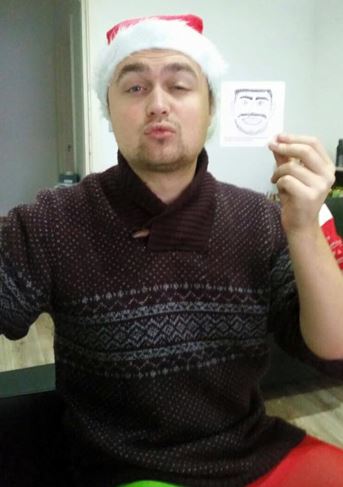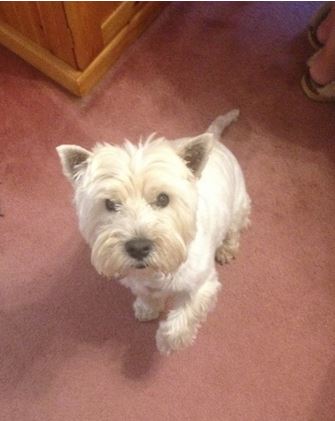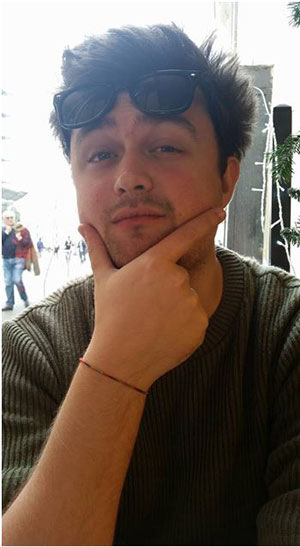December 6, 2016, by Editor
My Pre-reg Adventures: the Industrial Experience
This blog has been written by James Smith, a former MPharm student who is now in his pre-registration year.
In February 2016, I was half way through my pharmacy pre-registration training year. For a lot of pre-regs, the halfway point is no more significant than knowing how far they have progressed and how far they still have to go to meet the General Pharmaceutical Council (GPhC) standards. For me, it arguably carried more significance as it marked the end of my time working in the hospital sector and the beginning of my time working in the industrial sector.
For those who have not read my previous pre-reg blogs (which can be found here and here), I undertook a split pre-reg year, spending 6 months in hospital and 6 months in industry. For those who do not know, the pre-reg year is effectively a year of on-the-job training that a pharmacy graduate has to undertake in order to become a qualified pharmacist. Ultimately, pre-regs can work in a community pharmacy, a hospital pharmacy or they can spend 6 months working for a pharma company and 6 months in a hospital.
My industry placement was based with Bristol-Myers Squibb (BMS), a giant American pharma company. I worked at the BMS site in the Wirral as part of their research and development (R&D) team. The prospect of working in the pharmaceutical industry was the predominant factor that initially drove me to study pharmacy. Now, here I was working for at one of the R&D sites for one of the biggest global pharmaceutical companies! For me, it was like waking up on Christmas day to find that I had been bought a new puppy in place of the seemingly customary and consistently disappointing gift of new socks. (If you’re not a dog lover (God help you), insert your dream gift in place of ‘puppy’.)
Many people have asked me what I ‘actually did’ in the industry half of my pre-reg. With the placements being less common, these questions are very understandable. At BMS I was based in the drug product research and development team. Within this team, I undertook a 6-month independent research project, looking at a pharmaceutical development issue: excipient-induced disproportionation of drug salts. To ensure I do not bore anyone, I won’t explain what this phenomenon is – but if you want to know more, Google.
This project involved a lot of time working hands-on in the labs; initially learning how to use new equipment then designing and running experiments. The one thing that surprised me about the lab work was the degree of freedom and creativity permitted. As an undergrad, I had naively followed instructions without second thought. During my masters, I had designed my experiments but stuck to quite tight regulations set by my supervisor. In industrial R&D, scissors, tape, elastic bands and scraps of foam soon became vital tools for me to modify equipment and set up unique experiments! It took labs to another level of enjoyment for me. I also spent a lot of time in an office, processing results and reading academic papers and textbooks to develop my understanding of the research topic. Overall, it was a decent balance between practical ‘on-your-feet’ lab and sedentary office work.
The prospect of undertaking an independent research project excited me; I had enjoyed undertaking my dissertation over at the University of Nottingham campus in Malaysia (see my previous blog here) and I knew that the research life suited me well. That being said, naturally there is a bit of apprehension at starting any new project at a new location with new people etc. However, at BMS there was a great support network in place and the help I got from near enough everyone dissolved those nerves very early on. I had 3 main supervisors: a day-to-day project supervisor, a lead project supervisor and my pre-reg tutor. My day to day tutor was my primary contact regarding my research. He helped me to design my experiments and to drastically improve my research skills, frequently setting me extra tasks and pushing me along the way to improve and prepare me for life as a PhD researcher.
I would then meet with my lead project supervisor once a month to discuss what I had been doing and what I had planned for the next month or so, providing me with constructive feedback and ensuring I stayed on a sensible path. He also set these meetings up in the style of a PhD-student/supervisor meeting to give me a taste of what I was letting myself in for with my next career step (future blog to come). The only complaint I can have about either of these men was the friendly yet unflattering nickname by which they referred to me. Being called ‘Bogbrush’ was not ideal, although it did mean that I was finally distinguishable from all the other James Smiths in the world; therefore, I embraced it.
My final industry mentor was my pre-reg tutor, who also provided me with project advice but our meetings primarily revolved around my pre-reg and whether I was on target to hit all the GPhC standards and pass the exam. With the support of these 3 people, I gained some level of success during my time at BMS.
As in hospital and community pre-reg placements, when working in industry you must demonstrate that you are equipped to become a qualified pharmacist as assessed by the GPhC standards. Some of these standards, i.e. the clinical standards, can only be achieved in a clinical setting. This meant that most of my clinical standards had to be signed off prior to my move to BMS. However, many of the professional standards, such as using SMART objectives to achieve goals, could be accomplished via working in industry. Meeting the standards in an industry placements requires you to actively think about what you’re doing and how they improve you to work as a pharmacist in a clinical setting. It is a slightly harder job than when you’re already working in a clinical setting! However, with some reflection it is possible to link industry experiences to improving your skills in a clinical setting.
The hardest part about working in industry for me was keeping on top of my clinical and professional skills. The pre-reg exam contains very few, if any, industry sector questions. Hence, whilst I was loving my time at BMS, the knowledge I was gaining was not directly helping me to pass the exam. As a result, I had to find ways to keep my clinical knowledge fresh. My industry pre-reg tutor was very supportive of this and I was allowed a couple of hours on a Wednesday afternoon to read and attempt past pre-reg papers. I am not sure what other industrial pre-reg sites allow- but asking for a couple of hours a week to focus on clinical topics would not be an unreasonable request! Additionally, I found keeping in contact with the pre-regs at the hospital helped. Talking about what they had been up to in the hospital allowed me to keep my clinical brain ticking through my industrial placement. We even wrote/sourced questions for each other to attempt on Wednesday afternoons! There were also many pharmacists working at the BMS site with many offering advice and resources to guide me through!
I also still had some regional and local study days to attend. These offered me further ways to keep furthering my clinical knowledge and another chance to meet up with fellow pre-regs in the area! One of these sessions was the OSCE assessment at University of Manchester. This was like the dispensing exams in many undergraduate pharmacy courses, whereby we had numerous stations to attend, with a specific scenario associated with each – some with qualified pharmacists playing the role of a patient. Although slightly unnerving and something I have always struggled to treat as an authentic situation, the experience was useful. It provided me with the chance to be placed in scenarios that I may come across in the community sector- an area of pharmacy that I was struggling with at the time due to a lack of experience.
On that note, during my time in industry I was offered the chance to spend a few days in a community pharmacy back home – known as a cross-sector placement. I worked on the counter some days to improve my patient counselling skills and knowledge of minor ailments. Other days, I worked in the dispensary, being quizzed by the pharmacist on medicines and pharmacy law. I must admit that they were not the most exciting of days for me but it was certainly a useful experience and prepared me for both the exam and all the locum work I have undertaken since qualifying. It also allowed me to hit the final couple of clinical standards. Nevertheless, I couldn’t wait to return to the stimulating world of research.
The other bonus of life working in industry was the enhancement of my social life. I’ve never considered myself to be an unsociable bloke- as a regular attendee at UoN Pharmsoc events (especially the ones involving pizza and/or alcoholic beverages), I was quite proud of my social track record. However, BMS offered many after-work sports clubs including 2 weekly sessions of football and one weekly session of badminton. Frequently, we would go for drinks on a Friday (classed as ‘team bonding’). I was quite amazed by the frequency and duration of permitted coffee breaks- something unheard of when working in the other sectors of pharmacy. Tennis at lunchtime with my day-to-day supervisor soon became a thing and offered me a chance to show him who was King of the Court. Unfortunately, time and time again it proved to be him… however I somehow convinced myself that it was the participation that counted. Overall It was a great social atmosphere offering more organised out of work activities than my hospital experience had!
This half of the year also saw my return to the University of Nottingham for a couple of of antic-filled weekends. One of these weekends was to attend the UoN pharmacy pre-reg study day. This weekend event offered a morning of clinical/professional skills revision and exam tips, before an afternoon of careers advice. A meal and drinks reception in the evening (complete with an angry Italian waiter trying to run off with all the complimentary wine) adequately concluded the event. To any pre-regs who’s universities offer revision/training days too, I would recommend going. Not only is it lovely to catch up with those you haven’t seen for a long time, but they also provided extremely useful tips for the exam and future careers! As mentioned previously, I was a UoN pharmsoc regular and was (perhaps foolishly) offered the chance to return yet again to attend the end of year Pharmsoc ball. A lovely evening of tasty food, cracking entertainment and catching up with friends pursued. Despite a failed attempt to steal a giant Oscar trophy (deservedly presented to the lovely Michelle Dickson), it felt great to be welcomed back!

Tip: when trying to steal a human-sized Oscar, do not post a photo of yourself doing so online before escaping the venue.
At the end of my time at BMS, I had to present my project to the rest of the research and development team. I regarded these people as experts in pharmaceutical product development, hence presenting to them was quite a daunting task. Most of the audience had years upon years of working in this environment and all had an in-depth knowledge of pharmaceutics. In short: I was expecting a grilling. However, going into the presentation I felt well prepared and reasonably confident that my project would be regarded as ‘useful’. The presentation lasted 30 minutes with time afterwards for questions. Thankfully, my project was well received and after a couple of questions, the attention was taken away from me and a large discussion brewed between the team members about how they could continue to utilise my project in the future and possible further developments. My number one tip for pre-regs or anyone giving this kind of presentation is to have some back up slides containing information on supplementary work that was carried out but not considered crucial enough to include in the initial presentation. For one of the questions, I had data that I could’ve shown to help aid my answer – verbally describing how graphs look is nowhere near as effective as showing how they look!
In summary – working in industry was awesome! It was a fantastic intermediate between undergraduate and PhD life, teaching me further about the skills a good researcher requires and how to design effective experiments to reach goals. It gave me the chance to improve my communication and presentation skills, which has been reflected in my experience as both a PhD student and locum pharmacist. The social clubs and opportunities also provided by BMS added another dimension to the pre-reg experience and made me feel privileged to have been offered the opportunity to work there!
Thank you for taking the time to read my latest blog instalment. My next and final pre-reg blog shall be about the dreaded pre-reg exam. For any questions about any of my pre-reg experiences, please email on james.philip.smith@hotmail.co.uk.





Great information. Thanks for sharing. Keep posting.
Thanks again for your insight, it’s both interesting and reassuring 😀
Thanks for sharing this type of blog. I really liked it. Good job. Keep it up 🙂